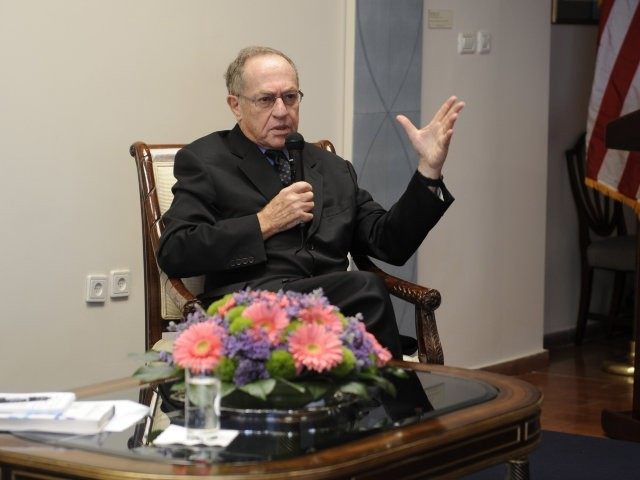In chess, blunders are noted with a “?” and major blunders with a “??”. However, the decision by lawyers Bradley J. Edwards and Paul G. Cassell to sue Harvard Law School professor emeritus Alan Dershowitz for defamation would deserve a third question mark, as it effectively discredits the claim by their unnamed client that Dershowitz committed rape against an underage girl. The claim was made in a lawsuit challenging a plea bargain in a prostitution case involving Dershowitz’s former client, Jeffey Epstein.
Dershowitz, who is not a target of that original lawsuit, was named along with Prince Andrew and former president Bill Clinton. He has since mounted a vigorous legal and media challenge to the claim, filing a sworn declaration with the federal court in Florida in which he denies the accusations, and suing to intervene in the case to clear his name. He has also called publicly for the accuser’s lawyers to be disbarred and has accused them of unethical conduct by failing to contact him to investigate their clients’ claims.
Previously, the lawyers had responded by stating that they had requested Dershowitz testify at a deposition, and that he refused. However, in his sworn declaration, he accuses them of misleading the public, saying that they sought his deposition in relation to what he knew about his client’s alleged crimes, not about the sex allegations. He could not testify about his knowledge without risking attorney-client privilege–and, he notes, the lawyers chose not to subpoena him, even though they could have done so.
Edwards and Cassell now claim that Dershowitz is defaming them, complaining that he “initiated a massive public media assault on the[ir] reputations and character” by “accusing them of intentionally lying in their filing.” Arguably, however, these are not defamatory statements of false facts, but constitutionally-protected statements of opinion. Moreover, the fact that Dershowitz made these statements in the course of debate over highly sensational allegations means that the defamation suit will likely fail.
Dershowitz, however, is welcoming the defamation suit as another chance to clear his name, since truth is a defense to the charge. He is also anticipating being able to depose Edwards and Cassell under oath. “I’m thrilled they sued me,” he told the Boston Globe. He has also described the ongoing controversy as a zero-sum game: “In the end, someone will be disbarred. Either it will be me or the two lawyers. In the end, someone’s reputation is going to be destroyed: either mine or theirs,” Dershowitz told the Globe.
The defamation lawsuit suggests desperation on the part of Edwards and Cassell. Presumably they could simply have defended their clients’ claim against Dershowitz by welcoming his intervention in the original lawsuit, providing proof and cross-examining him under oath. Instead, they have filed a defamation suit with little chance of succeeding, and which will certainly place them under scrutiny. It seems to be a scare tactic, aimed at the media–which in turn implies the original sex claim was tactical, not truthful.
Senior Editor-at-Large Joel B. Pollak edits Breitbart California and is the author of the new ebook, Wacko Birds: The Fall (and Rise) of the Tea Party, available for Amazon Kindle.
Follow Joel on Twitter: @joelpollak

COMMENTS
Please let us know if you're having issues with commenting.